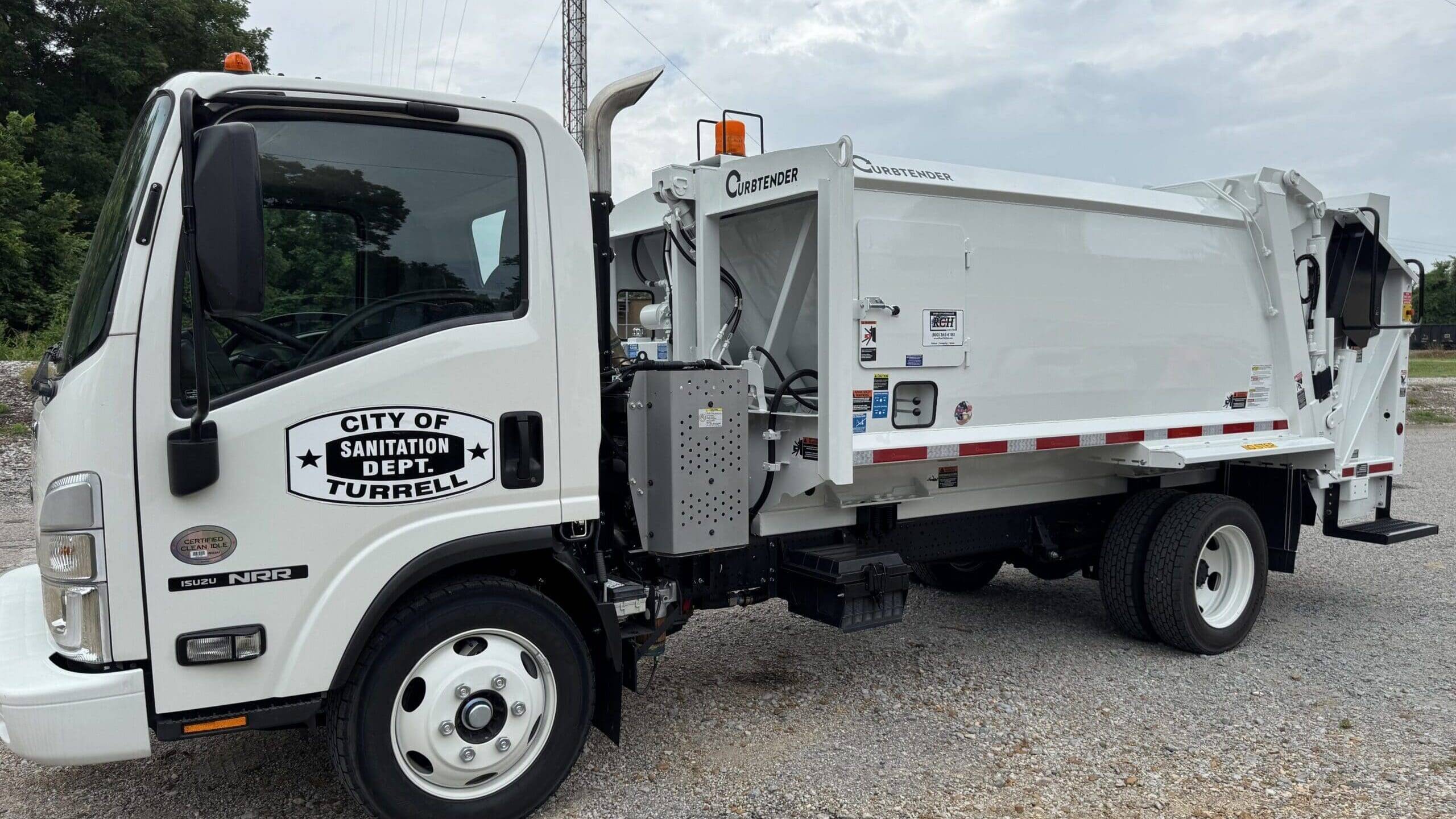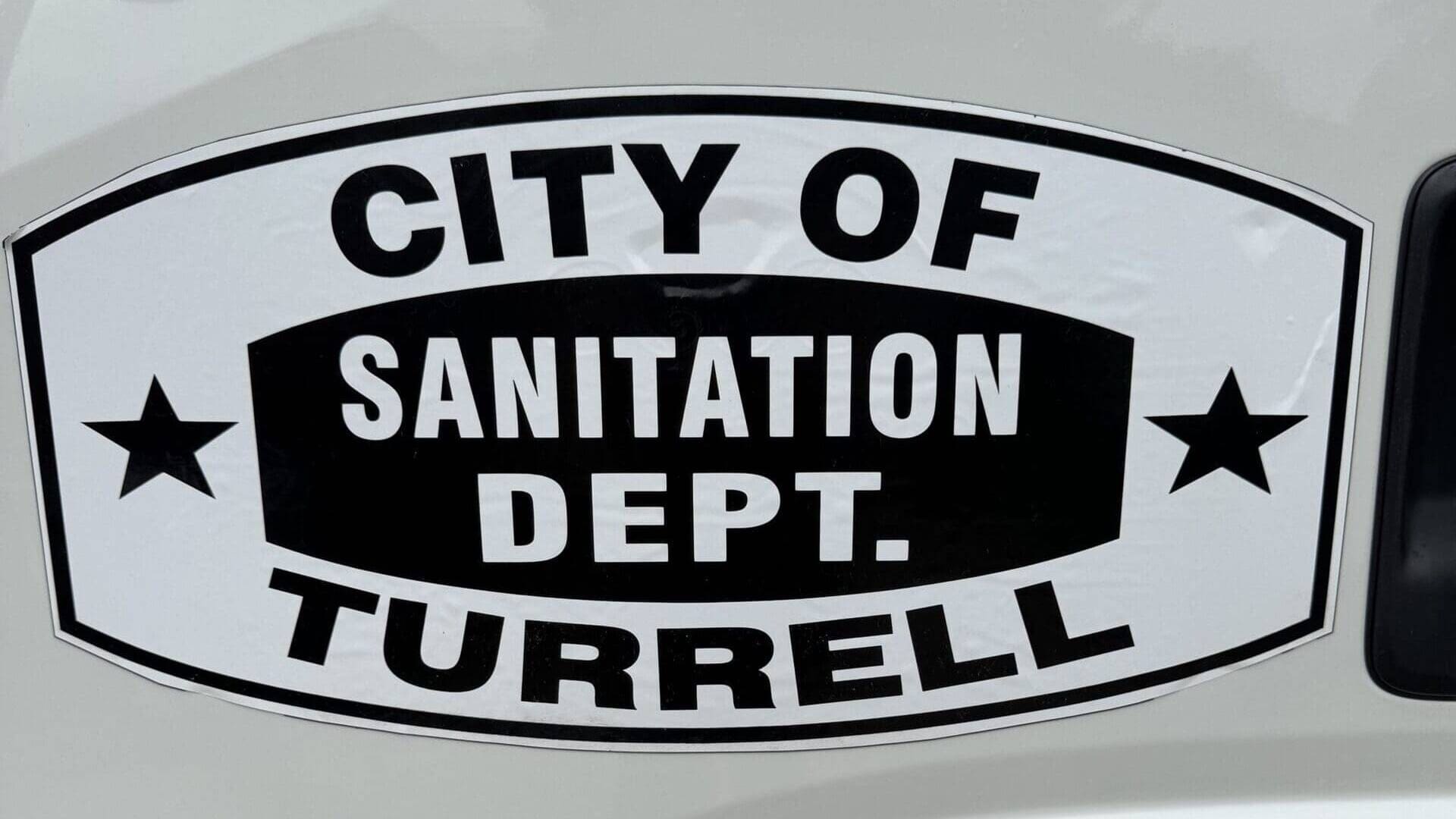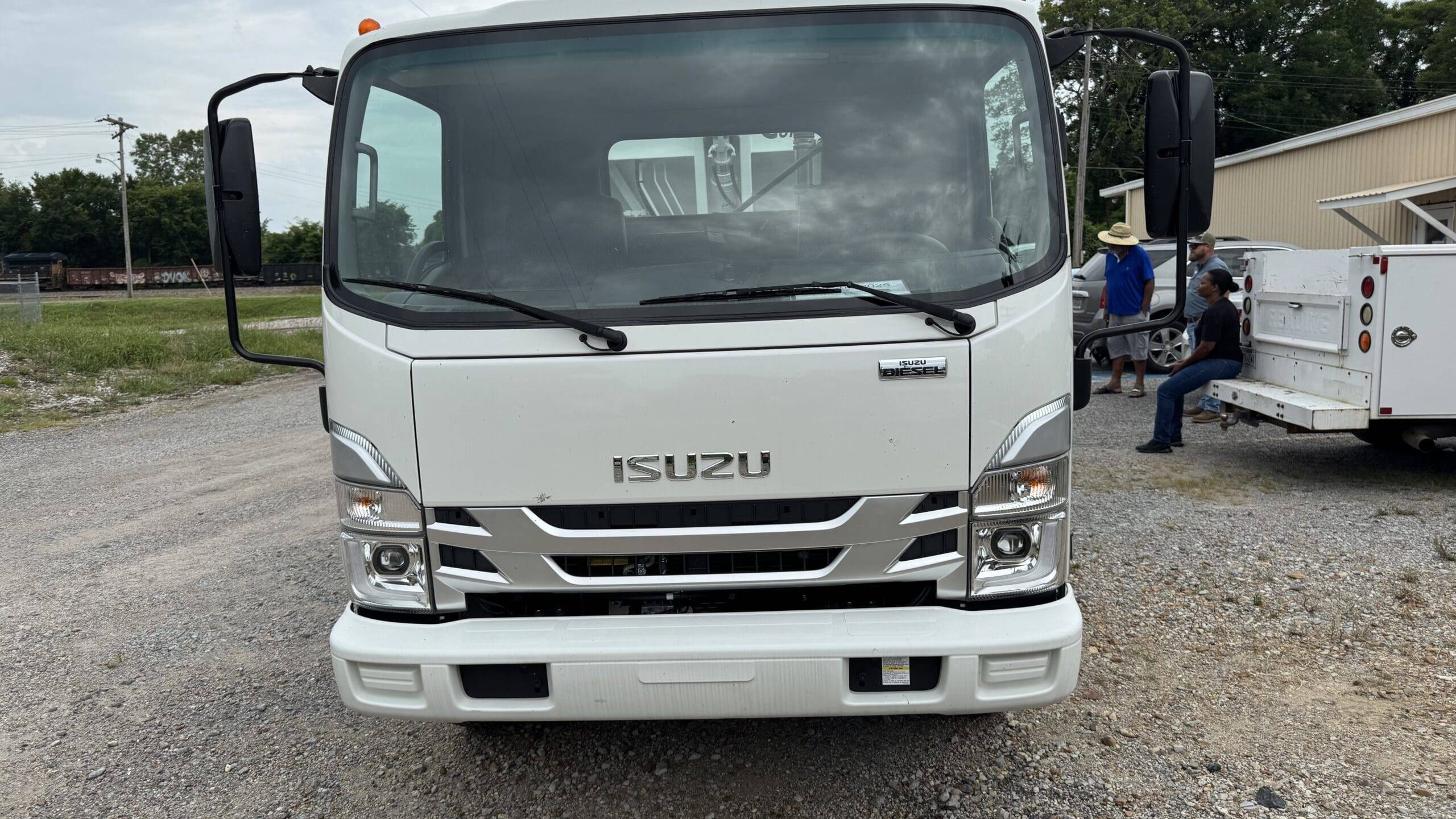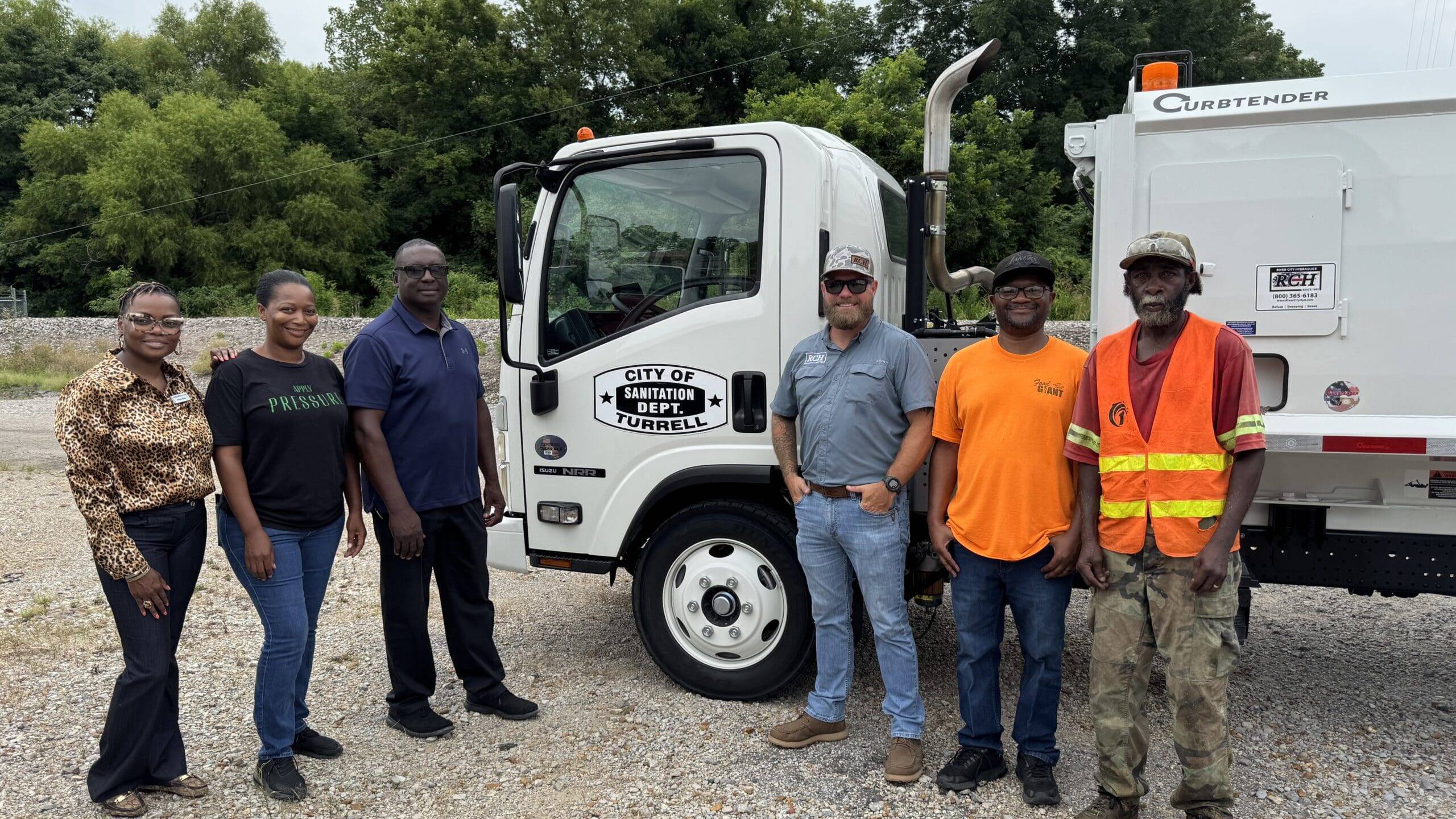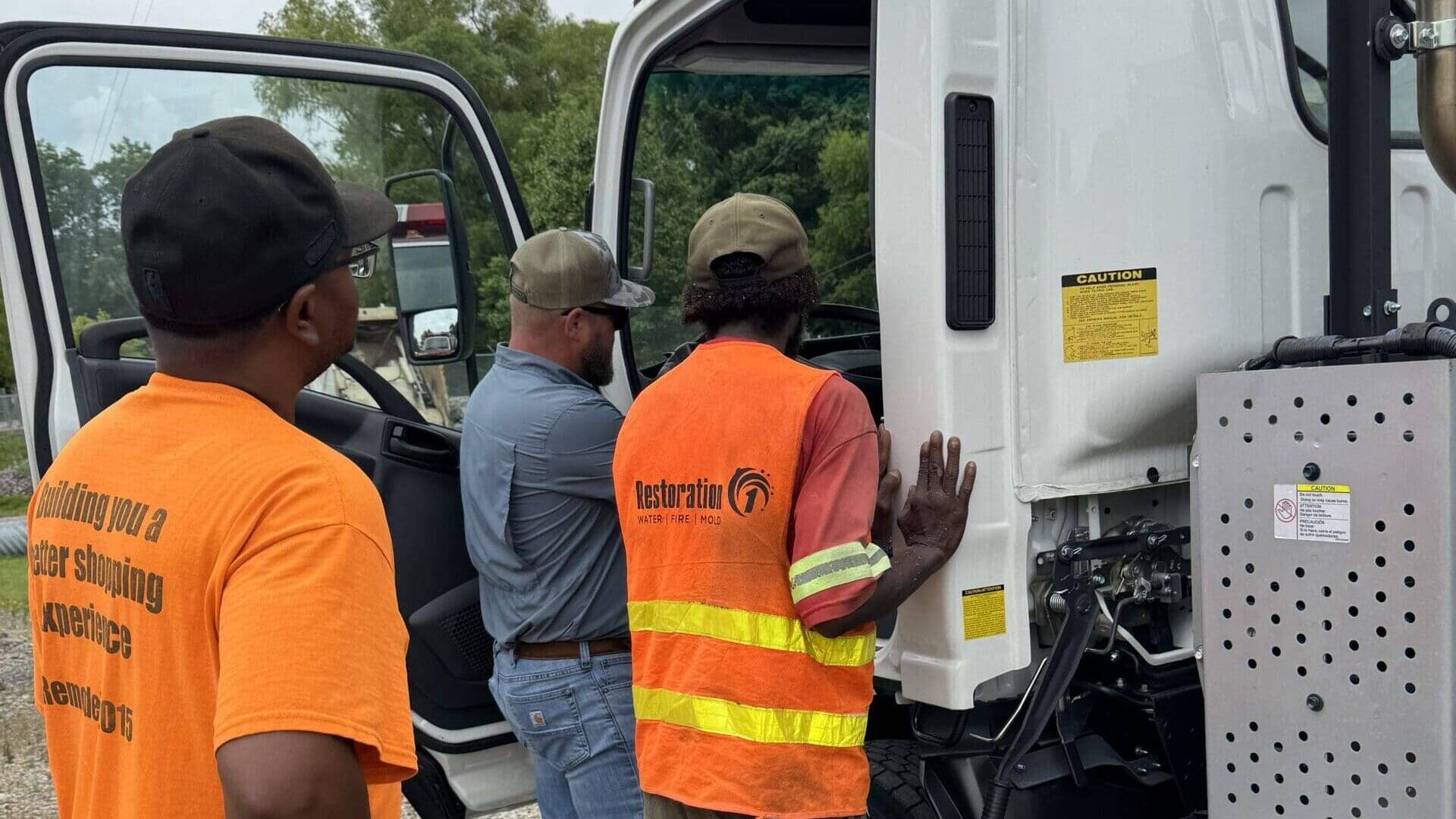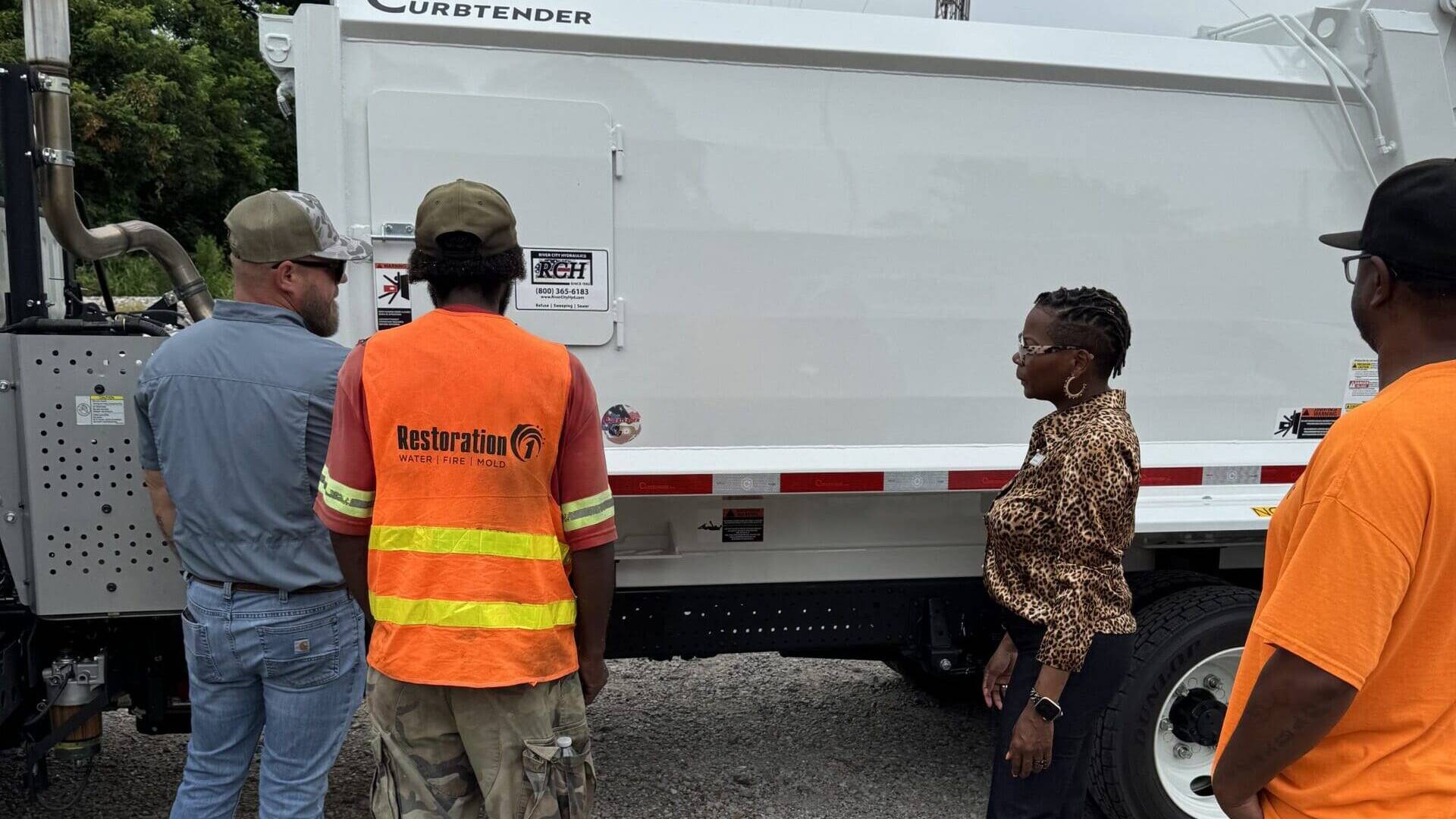In the heart of the Arkansas Delta lies the small city of Turrell in Crittenden County — just 25 miles north of Memphis, about 50 miles southeast of Jonesboro, and 140 miles northeast of Little Rock. With a population of just over 500, Turrell reflects many rural Southern towns: close-knit, under-resourced, and working hard to stretch limited funds to meet critical community facility needs.
This summer, the city took a major step forward when a brand-new sanitation truck was delivered on July 7, replacing an aging vehicle that had long passed its prime.
For decades, Turrell relied on a 1985 garbage truck, purchased new at the time but now nearly 40 years old. The vehicle had become increasingly unreliable, frequently breaking down and consuming a growing portion of the city’s tight budget.
“We were spending more on maintenance every week and every month than it would cost to just get a new one and make payments,” said Mayor Charles Webster.
With narrow city streets and limited staff, the size and upkeep of the old truck were no longer practical. City leaders knew they needed a more modern, cost-effective replacement to ensure continued sanitation services — and to stop draining funds from other essential services.
They found a solution in a compact Curbtender Quantum rear-load trash truck mounted on an Isuzu NRR chassis. The model offered several advantages, including better maneuverability in tight spaces and a design that doesn’t require a Commercial Driver’s License (CDL) to operate — a major benefit in a small town like Turrell, where staffing can be a challenge.
Purchasing the $155,706 vehicle required creative financing. Turrell pieced together several funding sources: a $50,000 USDA Community Facilities Technical Assistance and Training (CF TAT) Grant, $12,916.68 in American Rescue Plan Act (ARPA) and city reserve funds, and a $92,789.32 loan from the Lending Team at Communities Unlimited (CU).
The CU loan closed in June 2024, just as the city finalized paperwork with the USDA. In line with grant requirements, Turrell used the CU loan and city funds first, with the USDA disbursing the remaining amount to complete the purchase. After nearly a year-long wait for the vendor to build and deliver the custom truck, it officially arrived in July — a long-anticipated milestone.
“For a small city like Turrell, that’s a big deal,” Mayor Webster said.
This wasn’t Turrell’s first time working with CU — and it won’t be the last. Mayor Webster, who has served in city government for decades — first as a council member and now as mayor for more than 18 years — said his relationship with CU stretches back many years.
That ongoing partnership proved invaluable. CU’s support extended beyond financing. Through its Community Infrastructure Team, CU provided technical assistance, including a comprehensive rate study and an asset management plan, which helped strengthen the city’s financial outlook. The rate study, completed in January 2025, also included ACT 605 certification from the state — a tool to help ensure the sustainability of water and sanitation services.
Mayor Webster credited CU’s Community Environmental Management Specialist Deborah Brown and Senior Economic Development Loan Officer Chris Ranniger for their support throughout the process.
“It was a great working relationship,” the mayor said. “They were helpful, made sure we had what we needed, and were always available to guide us. They brought a lot to the table for our community.”
“It has been a positive and impactful experience working on the sanitation project in Turrell,” added CU’s Deborah Brown. “Witnessing firsthand the progress in community facilities is exciting, and it gives me hope for more to come in other cities and towns across the state.”
The new sanitation truck is already creating savings by eliminating the maintenance costs of the old vehicle. It has also improved daily operations, providing a safer and more efficient work environment for staff and more reliable service for residents. After nearly a year of waiting, the community is finally seeing the benefits roll in — literally.
And Turrell isn’t stopping here. The city is now planning to upgrade its water meter system using Geographic Information Systems (GIS) technology and is preparing to partner with CU once again.
“We want to use GIS to help locate and track them more effectively,” Mayor Webster said.
In a city where more than 21% of households live below the poverty line and the median household income is just $26,667, progress often depends on navigating complex funding streams and building strong partnerships. In this case, the combination of local leadership, federal support, and CU’s role as a Community Development Financial Institution (CDFI) made all the difference.
As a CDFI, CU is uniquely positioned to provide flexible financing and technical assistance to communities that are often overlooked by traditional lenders. This mission-driven approach helps ensure that community facility projects — like purchasing a new sanitation truck — can move forward, even in areas with limited resources.
“We’re just grateful that CU had funding available and presented it to us. It’s opened up opportunities for our city. We’ve been able to use it in a way that really meets our needs as a small community.”
— Charles Webster, Mayor of Turrell


